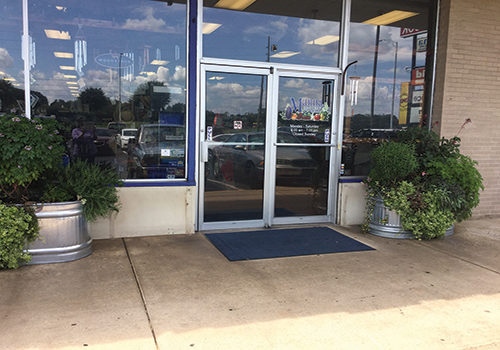It’s getting harder to make your store stand out in the crowded natural organic marketplace. If you honestly assess your competition, you will likely see your customers can get most of the same products you offer elsewhere; perhaps even more selection in certain categories.
It’s getting harder to make your store stand out in the crowded natural organic marketplace. If you honestly assess your competition, you will likely see your customers can get most of the same products you offer elsewhere; perhaps even more selection in certain categories such as frozen and refrigerated foods. Most non-traditional players, like conventional supermarkets, in addition to now offering a convincing assortment of natural organic products, often have on-staff nutritionists, weight-loss and quit-smoking programs, healthy eating store tours, menu planning and cooking classes, and partner with doctors and nurses to manage chronic conditions like type 2-diabetes.
How can you compete against this onslaught?
The Idea Behind the Things
Let us agree that anything you can do—add products, provide customer service or create an attractive space—your larger competitors can do as well or better. But there is something intangible about the best independent natural products stores none of the big chains can capture. And that is the feel of a place; the sum total of the sensory impressions that say to your customer, “You are in a living space,” offered by someone who genuinely cares.
It’s the smell of chamomile and comfrey coming from your bulk bins, the way products slightly overflow your too-full shelves in the supplements aisle, the chair you’ve thoughtfully placed in a corner by your library, with a sign offering to lend helpful books and inviting customers to sit and read.
I was speaking to my good friend, Frances Drennen, co-owner of Manna Grocery, in Tuscaloosa, AL, about making the store a place her customers want to go. Frances was telling me about the humble corrugated aluminum livestock feeding troughs she had just bought and placed outside the front of her store, filling them with rich soil and cascading greenery. None of this is for sale. Frances filled the planters to create a sense of aliveness, which carries over once inside. New floors in the front half of the selling space, a reset to increase grab-and-go offerings from the deli, a revitalized fresh produce case to better feature the all-organic fare.
You may remember the story I wrote (Tip of the Month, October, 2009) about the new bathrooms Frances put in after a customer gently suggested access wasn’t easy for a handicapped person. Frances didn’t have the funds it took to upgrade the facility, but borrowed because she felt it important to do so. Frances still gets compliments and “bathroom stories” today from customers who are so pleased; they look forward to coming to Manna to shop, knowing they will be welcome and comfortable.
So, why does the flower trough matter? Listen to Frances: “If we are competing in a world of [bigger competitors] that have more resources, even though we’re always talking about customer service as our ace in the hole, it is also about the shopping experience: it is just a place you want to go.” The planters represent Frances’s passion: the idea behind the things. WF
Jay Jacobowitz is president and founder of Retail Insights®, a professional consulting service for natural products retailers established in 1998, and creator of Natural Insights for Well Being®, a comprehensive marketing service designed especially for independent natural products retailers. With 38 years of wholesale and retail industry experience, Jay has assisted in developing over 1,000 successful natural products retail stores in the U.S. and abroad. Jay is a popular author, educator, and speaker, and is the merchandising editor of WholeFoods Magazine, for which he writes Merchandising Insights and Tip of the Month. Jay also serves the Natural Products Association in several capacities. In 2014, Jay received the Natural Products Association’s Industry Champion Award for notable contributions to the industry above and beyond commercial success. He can be reached at (800)328-0855 or via e-mail at jay@retailinsights.com.
Published in WholeFoods Magazine, October 2015










